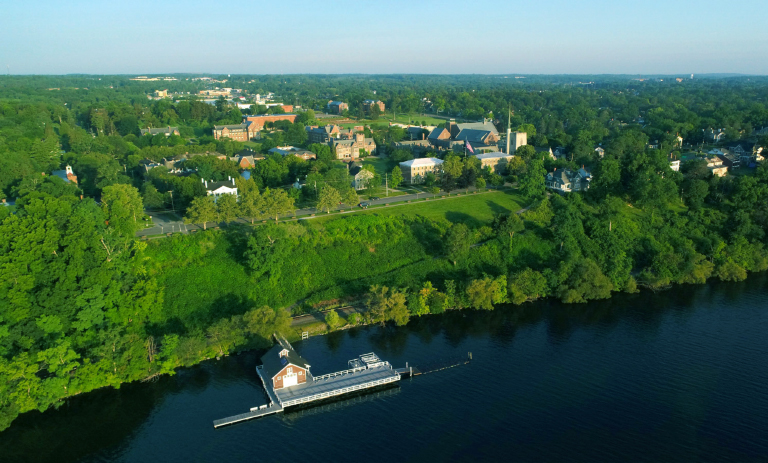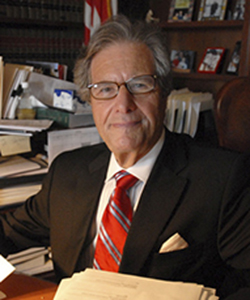
Lives of Consequence
The Honorable Harold Baer Jr. ’54

A staunch advocate of civil rights, diversity, and freedom of speech and expression, federal judge Harold Baer Jr. ’54 served on the bench in the Southern District of New York for 20 years.
In a retrospective on Baer’s career in the January/February 2015 issue of The Federal Lawyer, Philip Schatz writes of Baer’s “powerful legacy of commitment to equal rights and diversity” and his “[dedication] throughout his career to making the law fair, blind to color and class, and, above all, kind.”
Before his appointment to the federal court in 1994 by President Bill Clinton, Baer spent 10 years on the bench in State Supreme Court in Manhattan, a trial court on which his father, Harold Baer Sr., had been a judge. Prior to that, Baer had progressed from assistant counsel to the New York State Commission on Governmental Operations, to Assistant United States Attorney in Manhattan, to chief of the Organized Crime Unit, to executive director of the Police Civilian Review Board. Following 14 years of private law practice, he returned to public services as the first Deputy United States Attorney for Manhattan and became the youngest president of the New York County Lawyers Association.
During his time as a federal judge, Baer’s rulings raised the ire of Republicans and Democrats alike. Among the many controversial cases he presided over in his extensive career, Baer ruled unconstitutional: a policy of New York Mayor Rudolph Giuliani that limited the number of people who could participate in news conferences on the City Hall steps; a state law targeting the Ku Klux Klan that banned the wearing of masks at public gatherings (which Baer ruled unconstitutional under the First Amendment); and confinement conditions for pretrial detainees at Rikers Island.
Baer formed the Network of Bar Leaders to improve and expand communication among local, county, minority, ethnic, specialty and women’s bar associations. It is now a coalition of 50 member bar associations in New York. He also served as president of New York County Lawyers’ Association (NYCLA), at which time Baer and his wife Suzanne began to provide law students of color with eight-week internships with state and federal judges -- with stipends. In 2011, the NYCLA renamed the program “The Hon. Harold Baer Jr. and Dr. Suzanne Baer Minority Judicial Internship Program.”
That same year, Baer published his book, “Judges Under Fire: Human Rights, Independent Judges and the Rule of Law,” which drew on his decades of experience, arguing that Democracy was threatened in countries lacking respect for judicial independence.
Baer earned a B.A. in political science and history magna cum laude and with honors from Hobart College. As a student, he was inducted into Phi Beta Kappa and was active with the Board of Control, the Herald and WEOS-FM. He went on to graduate from Yale Law School. A consistent supporter of the Colleges, he was a member of the Hobart Club of New York and provided career counseling to HWS students. Baer received the Hobart Medal of Excellence in 1989.
Baer, who passed away in May of 2014, is survived by his wife and daughters, Elizabeth and Linda Baer.
“I think he had the street smarts of a state court judge and the real world humanity of what people see in state court every day,” Southern District Judge Richard Berman wrote of his colleague in an obituary in the New York Law Journal. “At the same time, he had the skills and ability to handle the federal cases, which are sometimes more complex -- so he had the whole package. He was a real people person.”
